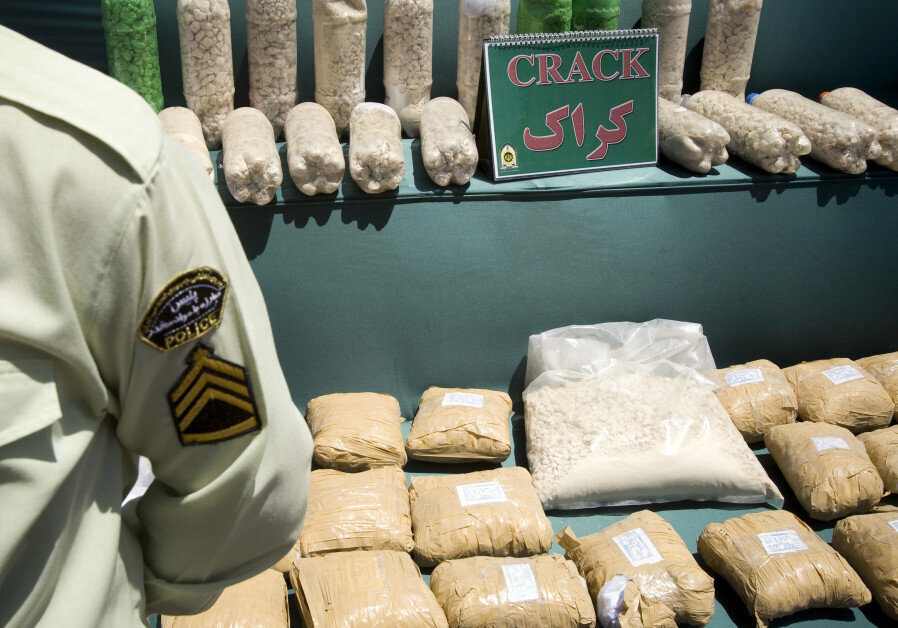National week against drug abuse underway

TEHRAN – The national week against drug abuse is being held with the theme of “First stop stigmatization, then strengthen prevention.”
The event is concurrent with the International Day against Drug Abuse, which is marked every year on June 26.
The theme of the first day of the week, June 20, is “Public participation, donors, community-based fight against drug.”
Themes of other days of the week are:
June 21: All-out effort to combat drug abuse,
June 22: War veterans, martyrs, pioneers of a healthy society free of addiction,
June 23: Spirituality, exercise, addiction prevention,
June 24: Faith and hope, helpers in life, addiction prevention,
June 25: Modern treatments, employment, protecting the recovered ones,
June 26: Knowledge-based and smart fight against narcotics, global determination, addiction prevention.
International Day against drug abuse
The International World Drug Day, established by the UN General Assembly in 1987, is observed on June 26 annually.
It aims to achieve a world free of drug abuse by strengthening the needed actions and fostering greater cooperation. It also tries to raise/spread public awareness of the serious problems posed by drug abuse in society.
The world drug problem is a complex issue that affects millions of people worldwide. Many of those who take drugs prevent from accessing the help they need because of facing stigma and discrimination.
The United Nations Office on Drugs and Crime (UNODC) recognizes the importance of taking a people-centered approach to drug policies, with a focus on human rights, compassion, and evidence-based practice.
This year’s World Drug Day is a call to:
Raise awareness about the negative impact of stigma and discrimination on people who use drugs and their families, raise awareness about the AIDS and hepatitis epidemics among people who use drugs and expand and strengthen HIV and hepatitis prevention programs, promote evidence-based, voluntary services for all people who use drugs, educate about drug use disorders, available treatments, and the importance of early intervention and support, advocate for alternatives to imprisonment for drug-related crimes, such as community-based treatment and services, combat stigma and discrimination by promoting language and attitudes that are respectful and non-judgmental, and empower young people and communities to prevent drug use and addiction.
Tackling drugs in Iran
The impact of dismantling the financial foundations of drug traffickers has increased by about 10 times over the past three to four years, Eskandar Momeni, the secretary general of the Iranian anti-narcotics headquarters, has said.
“This has led to a decrease of 15 percent in the entry of drugs into Iran.”
“The rising trend of drug production in Afghanistan started about 20 years ago, after the occupation of Afghanistan by NATO and the United States. Therefore, the smuggling of narcotics has increased almost 50 times, that is, from about 200 tons in 2000 to more than 9,000 tons,” Momeni added, ISNA reported.
In March, Momeni signed a memorandum of understanding with Ghada Fathi Waly, the director general of the United Nations Office on Drugs and Crime (UNODC) on the sidelines of the 66th session of the United Nations Commission on Narcotic Drugs (CND) that was held in Vienna.
The agreement opens a new chapter in Iran's cooperation with the United Nations in the four areas of dealing with the supply and demand of narcotics, and offering treatment and rehabilitation services, Momeni said, IRIB reported.
“We firmly believe that international conventions are designed to respond to the challenges and issues facing communities,” he said, adding that any interpretation aimed at legalizing or decriminalizing the illegal drug trade is a serious threat to the security of countries.
Therefore, the Islamic Republic of Iran strongly supports the position and effective role of the Commission on Narcotic Drugs as the main policy-making body of the United Nations in matters related to drugs and the role of the International Narcotics Control Board (INCB) in facilitating legal access to scientific and medical needs, Momeni highlighted.
“Despite the repeated emphasis of the United Nations on the principle of shared responsibility in dealing with global problems, including drugs, we still, unfortunately, witness the selective and political approach of some countries, especially in the financing of projects, programs, and the provision of technical equipment.”
Since 2017, the Islamic Republic of Iran has succeeded in discovering 5,372 tons of narcotics, he added.
“Valuable measures to reduce the rate of infectious diseases such as HIV (AIDS) and hepatitis among addicts have been taken.
Setting up healthcare, rehabilitation, and consultation centers, and empowering women and girls in cooperation with the UNODC and UNICEF offices in the cities of Tehran, Kerman, and Kermanshah were among the measures.”
In February, Momeni said Iran spends about $700 million to $1 billion annually to fight against narcotics.
According to the reports of international institutions and organizations, about 92 percent of drug discoveries are made by Iran, he said, adding that the country is completely alone and the cost is borne by the government and the people.
Momeni emphasized that the international community should increase support to the Islamic Republic to fight against narcotics, especially to curb trafficking, IRNA reported.
“A significant part of the financial burden in the field of combating narcotics includes blocking the borders, dealing with smuggling, identifying and monitoring the transit routes, and offering treatment and rehabilitation services.”
“However, Iran has not received any notable help from international organizations until today.”
MT/MG
Leave a Comment